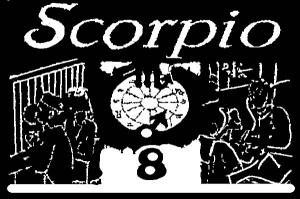January 31, 2016
Fourth Sunday in Ordinary Time
1st Reading:
Jer 1:4-5, 17-19
2nd Reading: 1 Cor 12:31-13:13 (or 1 Cor 13:4-13)
Gospel: Lk 4:21-30
Jesus said to the people of Nazareth, “Today these prophetic words come true even as you listen.” All agreed with him and were lost in wonder, while he kept on speaking of the grace of God. Nevertheless they asked, “Who is this but Joseph’s son?” So he said, “Doubtless you will quote me the saying: Doctor, heal yourself! Do here in your town what they say you did in Capernaum.”
Jesus added, “No prophet is honored in his own country. Truly, I say to you, there were many widows in Israel in the days of Elijah, when the heavens withheld rain for three years and six months and a great famine came over the whole land. Yet Elijah was not sent to any of them, but to a widow of Zarephath, in the country of Sidon. There were also many lepers in Israel in the time of Elisha, the prophet, and no one was healed except Naaman, the Syrian.”
On hearing these words, the whole assembly became indignant. They rose up and brought him out of the town, to the edge of the hill on which Nazareth is built, intending to throw him down the cliff. But he passed through their midst and went his way.
D@iGITAL-EXPERIENCE
(Daily Gospel in the Assimilated Life Experience)
After reading a Scripture passage describing the marks of the Messiah, Jesus remarked that what was read was fulfilled in their hearing. The reaction of the Jews was violent. At the start they felt God’s grace working in him and “they all agreed with him” (Luke 4:22). But their good impression of him changed when they began to rationalize. They concluded that Jesus was an impostor because the origin of the Messiah was supposed to be unknown.
The gift of intellection became for the Jews their biggest hindrance to the recognition of God’s presence in their midst! Something similar happens to us at Mass. The homily becomes moment for intellectual calisthenics instead of moment of prayer and reflection. Actually, rationalization is not irreconcilable with faith since faith also seeks understanding. But any submission of faith to intellection must be premised by a bias in favor of faith. Human intelligence is limited and cannot fathom the depths of the mysteries of God. There should come a point when intelligence gives way to faith, lest it reaches wrong conclusions fatal to human spirituality.
Jesus substantiated his claim that what Isaiah wrote was fulfilled in their hearing. He went about bringing sight to the blind, liberty to captives, and glad tidings to the poor. Still they did not believe. Too much intelligence, too little faith, if at all! — Rev. Fr. Dan Domingo P. delos Angeles, Jr., DM. Email:dan.delosangeles@gmail.com.
May comment ka ba sa column ni Father Dan? May tanong ka ba sa kanya?
I-type ang BANDERA
REACT <message/ name/age/address> at i-send sa 4467.


